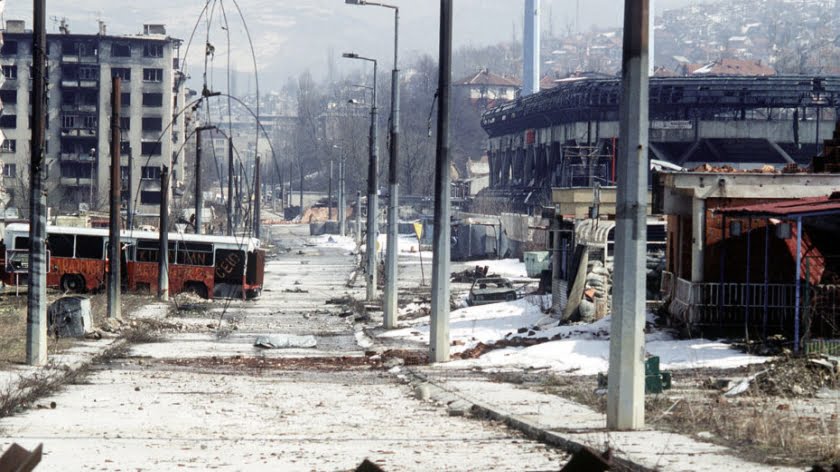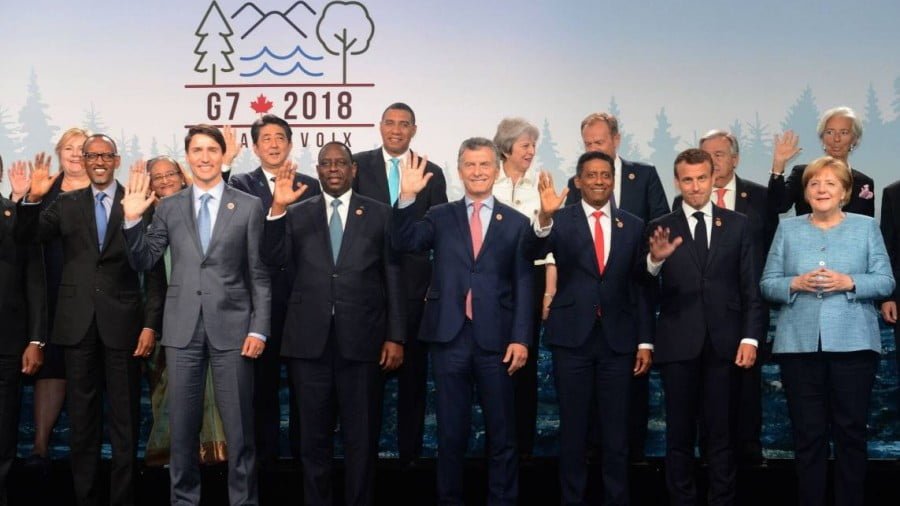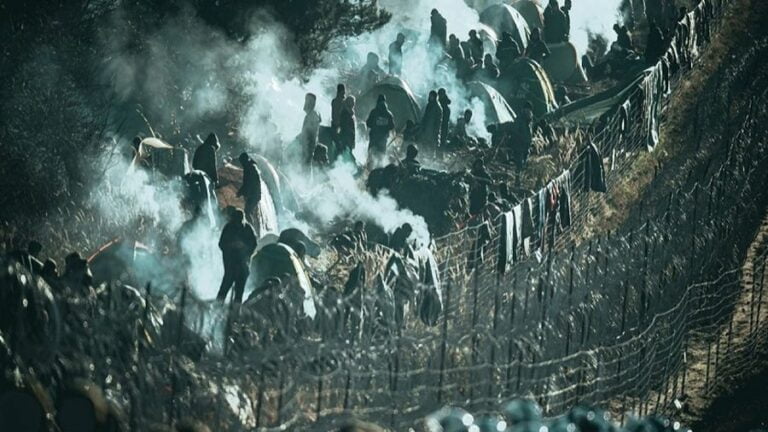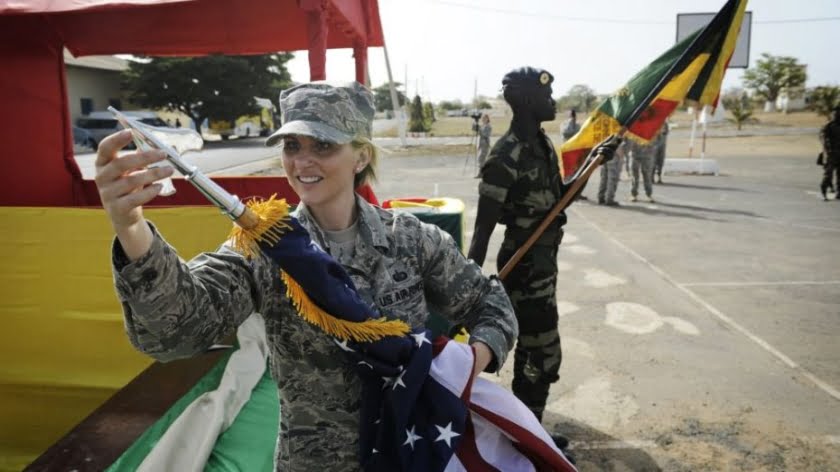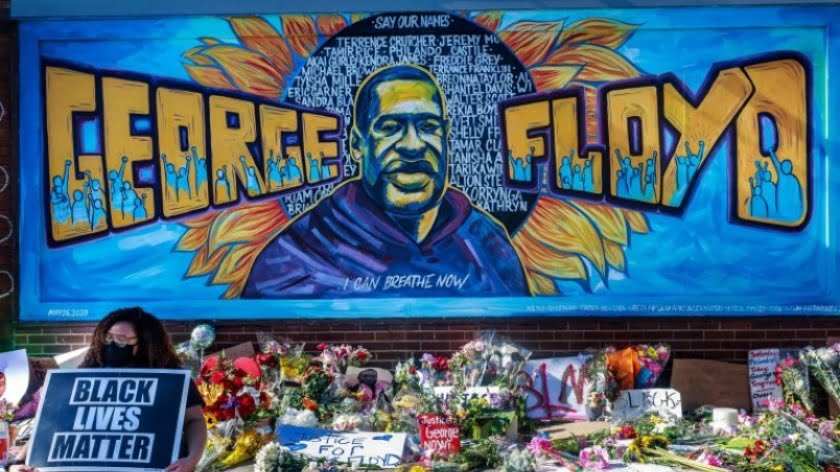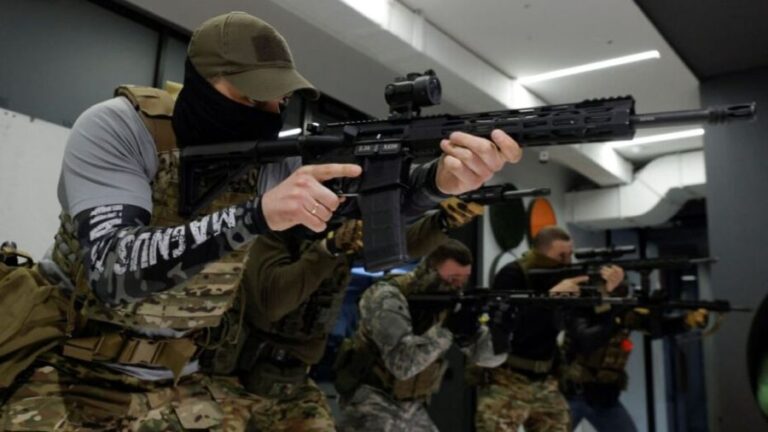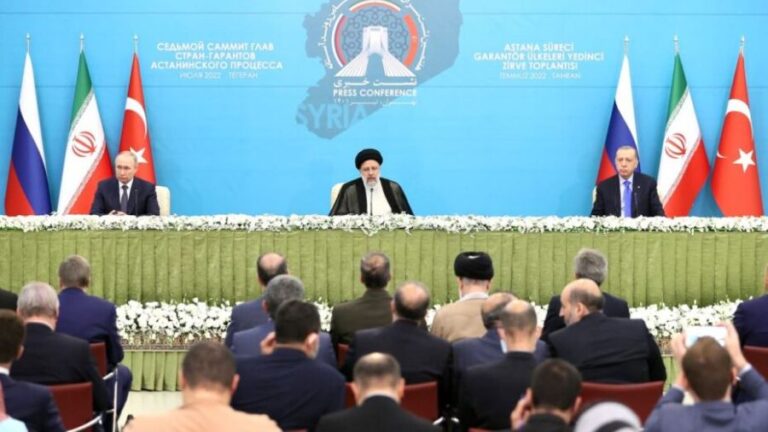The Balkans and Their Consequences
Where to start with today’s Balkans… Now, or almost three decades ago, when the victorious West decided, as its strategic and ideological foe disintegrated, that it could fearlessly flout the post-WW II international order standing on the key pillars of respect for the territorial integrity of states and non-interference in their internal affairs as laid out in the UN Charter and the Helsinki Accords, and went about the bloody business of breaking up Yugoslavia (with Germany taking the lead). So, yes, the seeds of today’s intractable instability were indeed sown at the start of the last decade of the 20th century. And, despite (or, actually, because of) the West’s 30-year “crisis management,” not only has “lasting peace” not taken hold in the region – but new troubles are on the horizon.
In Bosnia and Herzegovina (B-H), still a hopeless protectorate overseen by a High Commissioner almost 24 years after the peace agreement overseen by the then “indispensable nation” at the Wright-Patterson Air Force Base in Dayton, Ohio, cannot form a central government more than eight months after the general elections of October 7, 2018. The reason? The Serb-majority “entity”, Republika Srpska (B-H is composed of two highly autonomous “entities” – Republika Srpska and the mixed Muslim-Croat Federation of Bosnia and Herzegovina), refuses to submit to the Western-backed, Bosnian Muslim-led blackmail of accepting an “Annual National Program” that would set the country firmly on the path of NATO membership. Quite simply, the Serbs in B-H, having been the target of the first ever NATO combat intervention (1994 and 1995, on the side of the Bosnian Muslim government), not only do not like the alliance but also do not want to be militarily or otherwise separated from their countrymen in Serbia proper – who, having themselves been the targets of a full-fledged, illegal (without UN Security Council approval) NATO aggression in 1999, dislike the alliance at least as much and, additionally, refuse to participate in its Drang nach Osten push against Russia, which made even the father of “containment” uncomfortable. Meanwhile, there is a growing migrant crisis in the country, increasing Islamic radicalism, and charges of Western officials directly pressuring the judiciary to bring the “proper decisions,” among other things. And yet, as has been the case since the West chose their vassals at the start of the Yugoslav crisis, it is those Russia-loving Serbs that are bearing the brunt of Western criticism and condemnation. Plus ça change…
When it comes to so-called Kosovo, another Western protectorate formally ruled by former (?) terrorists, drug and human organ dealers and just plain criminals, recognized by most – although, importantly, not all NATO and EU countries – its EU-led “dialogue” with Serbia (in which Serbia will ultimately be considered “cooperative” only if it formally agrees to recognize the kidnapping of its most important historical and sacral territory) has stood still since last November, when the Hole-in-the-Wall gang masquerading as the “Kosovo” government decided to unilaterally impose a 100% tax on goods imported from Serbia proper until Serbia recognizes it. And, if Western diplomats are to be believed, no amount of fretting, frowning, and tepid admonishment will make them change their minds on this. Remember, this is the same West of the “humanitarian bombings” and draconian sanctions against ex-Yugoslavia, Russia, Iran, Syria, Iraq, North Korea, Cuba, etc. talking. Yet – no sanctions so far have been imposed against Pristina (the “Kosovo” capital), which is all we need to know regarding the seriousness of not only the pressure, but the intentions of the self-proclaimed democratic part of humanity in general regarding their prized failed state creation. Just as there was no real reaction concerning masked armed thugs in police uniforms recently sent from Pristina to the Serb-majority north of the province to terrorize and rough up civilians on the pretext of battle against crime and corruption, as there was none the last time it happened, when the head of Serbia’s Kosovo and Metohija office was literally dragged through the streets while being illegally arrested during a visit to the province. Because, you see, Pristina is a shining example of clean, corruption-free government – although the Council of Europe might beg to differ…
In Montenegro, the Trump-described land of “very strong… very aggressive people” that might draw the US unwittingly into “world war three,” its 600,000 or so populace having been rushed into NATO membership in 2017 without a proper referendum, on the wings of a badly written fairy tale about an attempted Russian-sponsored coup – the West’s favorite strongman, Montenegrin president and 30-year supreme – sorry, “democratic” – leader Milo Djukanovic, recently announced a Ukrainian-inspired scenario involving the confiscation of churches, monasteries and properties of the Serbian Orthodox Church (SOC) in that country. This despite the Church’s 800-year history there and the fact that the statelet owed its survival during the Ottoman occupation of the peninsula to a dynasty founded by “prince-bishops” that ruled the country as a “Serbian Sparta” until its unification with Serbia in 1918, with the formation of the first Yugoslavia. Indeed, the present SOC bishops in Montenegro are warning that, together with the faithful, they will defend their temples “with their lives” if necessary.
However, if one belongs to the, thankfully, vanishing breed that relies solely on Western “free & independent” media for information, there is nothing really to see here other than “Russian malign influence” and China’s “debt-trap diplomacy” ruining the party for everyone. If not for these nefarious influences, everything would be just peachy. Never mind that neither of the reborn Eurasian powers have anything remotely to do with the above looming disasters – nor their root causes, originating in a time when they were mere blips on triumphant Unipolarity’s radar. Or that neither advocate anything other than a return to a semblance of a world order, based on “sovereign equality and non-interference in internal affairs.” For, NATO has “unfinished business” in the Balkans, and no one (meaning, specifically, those dastardly Serbs, who seem to get along with both the Russians and the Chinese just fine) is going to get in the way.
So, yes, the Balkans do have their consequences. First, their re-Balkanization by the West in the 1990s set important precedents for other aggressive moves of the Cold War victors the world over during the next two decades, which brought peace neither to the regions nor to the Balkanized international scene. Today, on the brink of new Balkan crises (and the above is not an exhaustive inventory) and the return of the proverbial “tinderbox” (that somehow always seems to get its spark from the outside) – one cannot but fear what the next round might bring to everyone. For, one thing is certain – what the present, declining West judges it cannot keep, it would rather destroy than allow to fall into “enemy” hands. The enemy being not just Russia and China, but multipolarity, as the best alternative to the unilateralism, destruction and instability of the prematurely pronounced “end of history.”
By Aleksandar Pavic
Source: Strategic Culture

